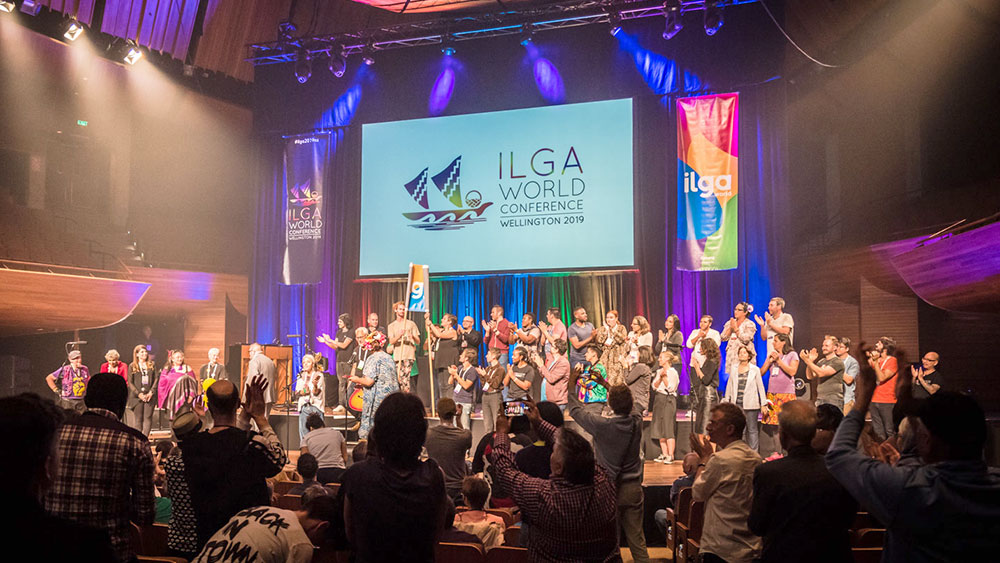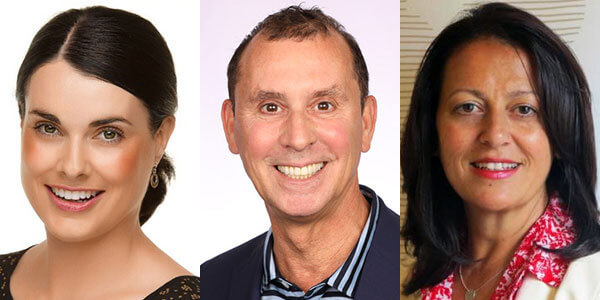
In March, Wellington, New Zealand, hosted the ILGA World (International Lesbian, Gay, Bisexual, Trans, and Intersex Association) conference. (Alex Efimoff for ILGA World)
In the wake of the massacres at two Christchurch mosques last month, images of New Zealanders embracing diversity and standing together as one community have touched and inspired others around the world. Members of the business events industry say that the sector can play an important role in facilitating such inclusiveness as it brings people together from all corners of the globe.

Anna Fennessy (from left), Dave Jeffreys, Sylvia Andre
“Following the tragic events in Christchurch and the global response condemning the actions of those responsible, we would not be surprised to see business events proactively looking to play an increased role in fostering more cultural understanding and inclusiveness,” said Anna Fennessy, global manager, business events, at Tourism New Zealand.
“For example, in March, Wellington [New Zealand] hosted the ILGA World (International Lesbian, Gay, Bisexual, Trans, and Intersex Association) conference and the city went all out to welcome and embrace the event,” Fennessy said. “This involved painting a rainbow welcome at the airport and linking the conference with more than 100 pride-related events occurring in the city that month.”
Dave Jefferys, president of U.S.-based marketing firm Altus Agency and founder of the LGBT Meeting Professionals Association, said he believes that awareness of the economic and cultural impact of LGBT groups is growing within the business events industry. He referenced examples from the United States, such as Philadelphia’s hosting four LGBT groups’ meetings in 2018, while New York will host WorldPride in June this year, with the event marking the 50th anniversary of the Stonewall uprising. Such initiatives, Jefferys said, are helping to create a more respected place for the LGBT community.
Fennessy said she would like to see best practice for religious understanding and LGBT diversity shared across the business events sector, with the aim that all events approach inclusiveness with the same high standard, encouraging this model to become the norm.
Empathy is seen as crucial to developing such inclusive and diverse environments, so how can planners build more empathy into events and their outcomes? The key ingredient, said Sylvia Andre, global vice president, marketing and communications, at agency MCI Group, is to always focus on event strategies and designs from the attendees’ perspective.
“We experience better outcomes and results for our clients when we use event design processes and tools that take a human-centric approach,” she said. “Whilst there are many techniques and ways to build empathy, a good start is to create interaction and listening opportunities for the event attendee.”
Major events have the power to mobilise large numbers of people and create a meaningful impact in different ways, Andre said. “At a basic level, this may mean the creation of an enjoyable experience for the event attendee or a more advanced opportunity to create an event design than can positively change people’s long-term behaviour on any given topic that a brand, association, or government needs” to have communicated.
Learn how Dave Jefferys, one of PCMA’s Ascent Luminaries, transformed “an underground network of LGBT meeting professionals” into a thriving organization.
